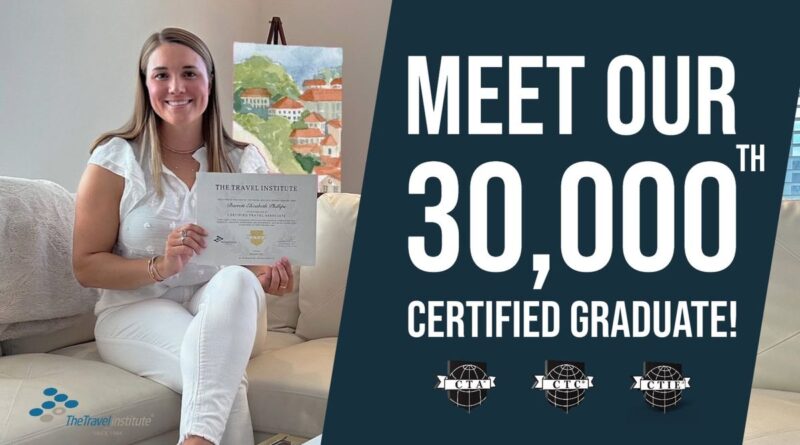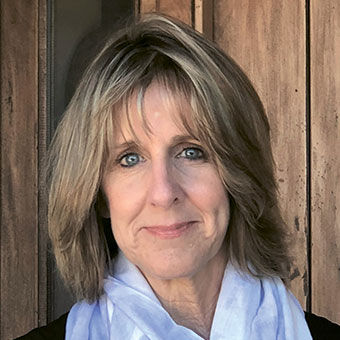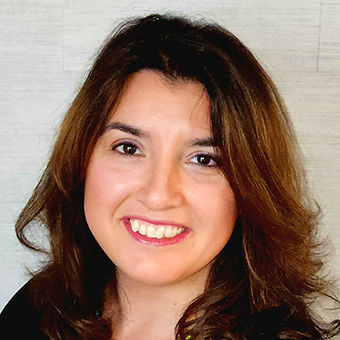With many new advisors in the industry, the Travel Institute is busier than ever
Diane Petras, president of the Travel Institute, does not dispute a phrase she often hears: “Anybody can become a travel agent.”
“But there’s a lot to know before you can become successful,” she said.
Petras said she believes at least some of that knowledge should be a prerequisite to becoming a travel advisor.
Instead, it’s a largely unregulated profession: Even though a handful of states have seller-of-travel laws that require fees paid to the government and other requirements to operate a travel agency, in most cases just about anybody can call themselves a travel advisor.
And as more advisors are entering the industry than at any time in recent memory, the Travel Institute is on a mission to educate them and has plans to invest in scholarships next year to bring agents up to speed more quickly.
The scholarships will be for advisors enrolling in Tripkit, the Institute’s introductory-level program. It’s the first time the Institute has offered Tripkit scholarships (certification scholarships are usually offered each summer).
It’s a need that Petras said is great, with an “inordinate amount of new people coming in” to the industry.
Travel Weekly’s Travel Industry Survey, released this month, indicated that 36% of advisors began selling travel in the past five years, and 19% began in the past two. Just two years ago, only 9% of advisors had entered the industry within the past five years.
This year, the Travel Institute is on track to enroll 5,000 students, more than double the typical number, Petras said. It recently issued its 30,000th certification to a graduate, and since 2018 it has averaged 1,000 certified graduates each year.
“My job is to make sure they’re ready for the industry, and our graduation numbers are over 1,400 this year alone,” said Guida Botelho, senior director of education. “Think about that. When we pause and we say there’s over 1,400 people out there ready to go to an agency? They’re big numbers.”
Many new advisors are career changers spurred onto a new path by the pandemic.
“I think a lot of them got burned out, especially when we look at the nurses and the teachers; even seeing some other interesting careers, financial planners, even lawyers, that are coming into the space,” Petras said. “The good thing is they have a lot of great skills, and they do have a following.”
Petras said they still benefit from training and certification, an important tool for an advisor’s credibility in consumers’ eyes. She called it a “pre-vetting tool,” displaying that an advisor is a serious professional.
“We are, as humans, wired to care about credentials,” she said.
Whether travel advisors should be subject to more stringent professional requirements, akin to the bar exams lawyers must pass to practice law, has long been a subject of debate.
Some argue it would further legitimize the profession, but they also contend it would create a barrier to entry at a time when consumer demand for advisors is arguably at its highest in recent history.
Petras said it’s unlikely more stringent requirements will be put into place by state governments and acknowledged they could be a barrier, especially for host agencies onboarding large numbers of advisors each year.
But she is in favor of a “minimum vetting tool” for advisors, such as the Travel Institute’s Travel Agent Proficiency test. It’s a proctored exam that covers industry basics like geography, products and selling skills. Even if it isn’t used for certification, Petras said, if advisors take the proficiency exam then hiring agencies would know where advisors might need extra help.
Travel Institute is turning 60
At CruiseWorld earlier this month, the Travel Institute surprised John Chernesky, senior vice president of North American sales for Norwegian Cruise Line, with his Certified Travel Industry Executive designation, Botelho said.
It was a good example for the rest of the industry, Petras said, displaying a level of care about quality education and certification. “All of us that have been here awhile, we have to be role models,” Petras said. “We can’t talk about it. We have to do it. … It needs to start at the top.”
Next year will mark the Travel Institute’s 60th anniversary. In addition to offering scholarships for its Tripkit program, Botelho said more destination-focused content is coming.
“We celebrate the past, but we also have to look for the future,” Botelho said. “And let’s look at those numbers: Here we are, talking about 5,000 [enrollees] and more. Those people need us.”
Source: Read Full Article





